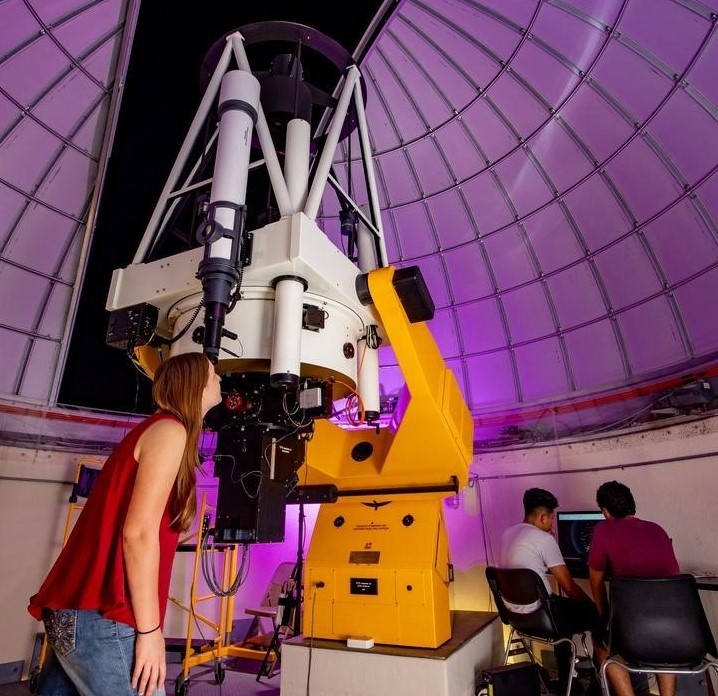Document Type
Article
Publication Title
Monthly Notices of the Royal Astronomical Society
Abstract
We present a new analysis of the rapidly oscillating Ap (roAp) star, 2MASS J19400781 - 4420093 (J1940; V = 13.1). The star was discovered using SuperWASP broad-band photometry to have a frequency of 176.39 d-1 (2041.55 μHz; P = 8.2min; Holdsworth et al. 2014a) and is shown here to have a peak-to-peak amplitude of 34 mmag. J1940 has been observed during three seasons at the South African Astronomical Observatory, and has been the target of a Whole Earth Telescope campaign. The observations reveal that J1940 pulsates in a distorted quadrupole mode with unusual pulsational phase variations. A higher signal-to-noise ratio spectrum has been obtained since J1940's first announcement, which allows us to classify the star as A7Vp Eu(Cr). The observing campaigns presented here reveal no pulsations other than the initially detected frequency. We model the pulsation in J1940 and conclude that the pulsation is distorted by a magnetic field of strength 1.5 kG. A difference in the times of rotational maximum light and pulsation maximum suggests a significant offset between the spots and pulsation axis, as can be seen in roAp stars.
DOI
10.1093/mnras/stx2401
Publication Date
2018
Recommended Citation
Holdsworth, Daniel L.; Kurtz, Donald W.; Saio, Hideyuki; Provençal, Judith L.; Letarte, Bruno; Sefako, Ramotholo R.; Petit, Véronique; Smalley, Barry; Thomsen, H.; and Fletcher, C. L., "Whole Earth Telescope Discovery Of A Strongly Distorted Quadrupole Pulsation In The Largest Amplitude Rapidly Oscillating Ap Star" (2018). Aerospace, Physics, and Space Science Faculty Publications. 475.
https://repository.fit.edu/apss_faculty/475


